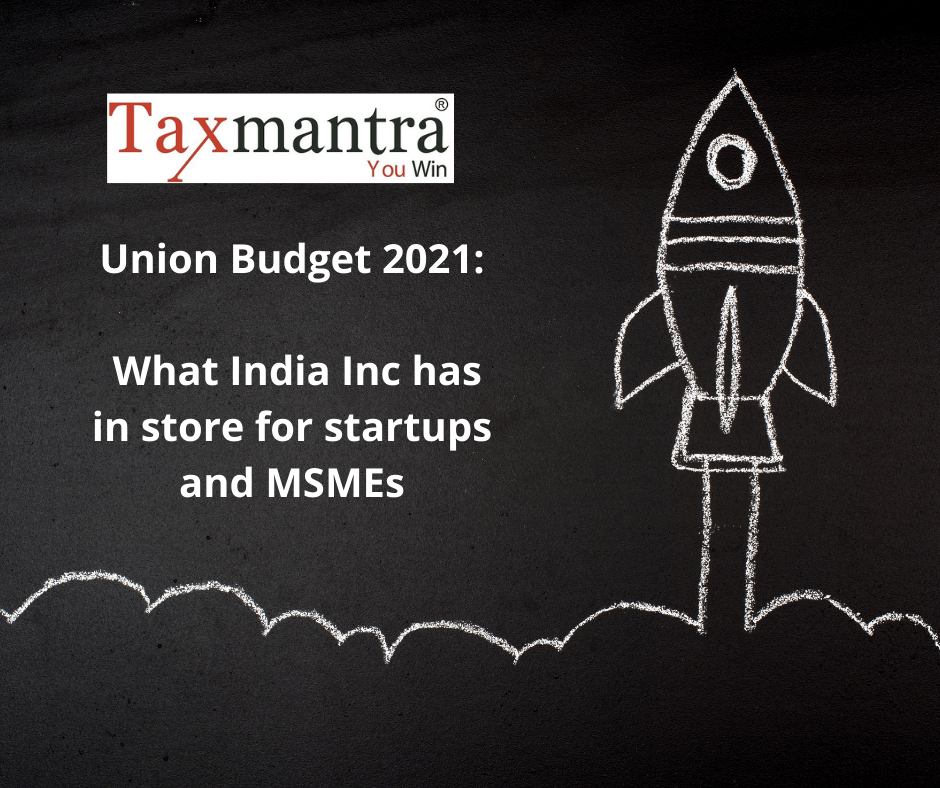 The Union Budget 2021 was important for a lot of reasons. Against the backdrop of de-growth (first ever!), the pandemic ridden country was looking forward to its Govt. This was also the first-ever digital budget. A lot of things were announced. As usual, there were winners and loosers. Startups and MSMEs, especially digital industry were among the positive gainers.
The Union Budget 2021 was important for a lot of reasons. Against the backdrop of de-growth (first ever!), the pandemic ridden country was looking forward to its Govt. This was also the first-ever digital budget. A lot of things were announced. As usual, there were winners and loosers. Startups and MSMEs, especially digital industry were among the positive gainers.
Here, we have discussed the major giveaways that the Union Budget had for startups and MSMEs.
1. Huge impetus to the digital payments industry – Rs 1,500 crore allocation
Finance Minister Nirmala Sithraman during her Union Budget 2021-22 speech said the government has earmarked Rs 1,500 crore to provide financial incentives to incentivize digital payments.
However, how the funds will be deployed has not been mentioned. Industry veterans are hoping that funds will be used towards developing alternatives to zero merchant discount rate policy and initiatives towards bringing digital financial literacy in vernacular languages. It may also be used to reimburse losses suffered by payment service providers for processing RuPay debit cards and UPI transactions for free in 2020.
2. Rs. 15700 crore allocation for the MSME sector
The Union Budget 2021-22 has earmarked an allocation of Rs 15,700 crore for the Ministry of Micro, Small and Medium Enterprises. This is double of what was allocated in the previous Union Budget.
3. Tax Holiday extended for one year
This is likely to attract more investment outflow in startups. With proper planning, more investment inflows can also help in reducing the fiscal deficit.
4. Ease of Funding secured via GIFT City – IFSC Route
5. Extension for exemption from capital gains by one more year
6. Digital Census 2021 – MCA 21 3.0
7. Incentivising the One Person Company (OPC) set up
- Restrictions on paid-up capital and turnover removed.
- Their conversion into any type of company any time allowed.
- NRIs can now form an OPC – The residency limit for Indian citizens revised to 120 days from 180 days.
Allowing NRIs to invest through this route is likely to encourage startups and small business set up without the concerns of a larger compliance framework or minimum capital commitment
8. Scope of “Small companies” extended
Changes were proposed in the definition of small companies under the Companies Act. Companies with paid-up capital up to Rs 2 crore and turnover up to Rs 20 crore will fall under small companies.
Previously, this threshold held the limit of paid-up capital to Rs 50 lakh and turnover up to Rs 2 crore.
Small companies are exempt from complying with a lot of compliances under the Companies Act. Hence, by expanding the net for small companies, this move will definitely benefit a lot more businesses.
9. Insolvency Resolution:
In order to ensure faster resolution of cases, Sitharaman said that the National Company Law Tribunal (NCLT) framework will be strengthened, the e-courts system will be implemented, and alternate methods of debt resolution and special framework for MSMEs will be introduced.
10. Customs Duty Slashed:
The government said that it is reducing Customs duty uniformly to 7.5 per cent on semis, flat, and long products of non-alloy, alloy, and stainless steels to help MSMEs and other user industries that have been severely hit by a recent jump in iron and steel prices. Sitharaman also announced exempting duty on steel scrap for a period up to 31st March, 2022 to provide relief to metal recyclers, mostly which are MSMEs. The minister also proposed an increase in duty from 10 per cent to 15 per cent on steel screws and plastic builder wares to benefit MSMEs.
11. Increase FDI limit from 49% to 74% in insurance
In 2015, the government had hiked the FDI cap in the insurance sector from 26% to 49%.To attract more overseas capital inflows, finance minister Nirmala Sitharaman on Monday increased the foreign direct investment (FDI) limit in the insurance sector from the existing 49% to 74%. The government has earlier allowed 100% foreign direct investment in insurance intermediaries. Intermediary services include insurance brokers, reinsurance brokers, insurance consultants, corporate agents, third party administrators, surveyors and loss assessors.
This move is likely to ease access to finance and increase fund availability for insurance businesses in India. Additionally, the proposal of providing FPIs an entry into debt financing of REITs and InvITs will pave the way for newer sources of finance for real estate and infra sectors.
__________________________________________________________________________________________________________
We’re listening:
For any query, support or feedback, reach us at India Tax and Legal Compliances or WA us at +91-9230033070 or Call us at 1800-102-7550
In these troubled times -COVID-19, we, at Taxmantra Global urge you to stay safe – social distancing, personal hygiene, and health care are of utmost importance! Stay safe!
______________________________________________________________________________________________________
 customersuccess@taxmantra.com
customersuccess@taxmantra.com Toll Free:
Toll Free:  Contact Us
Contact Us

